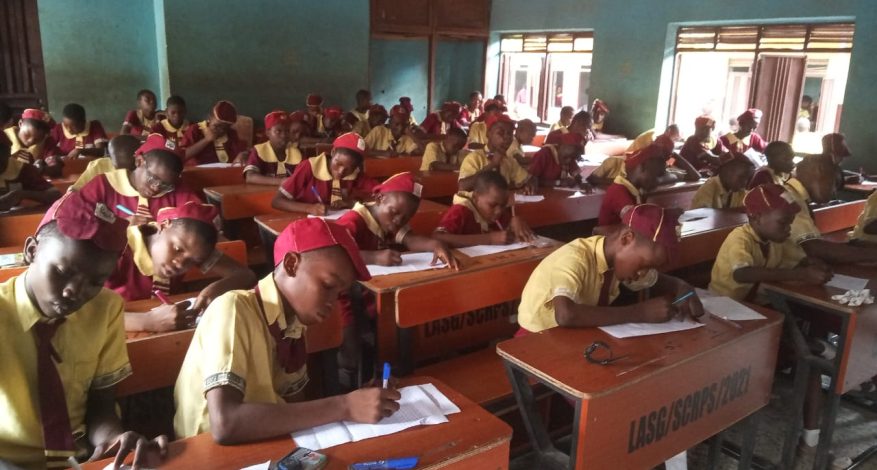The Importance of Academic Excellence in Secondary Schools and Its Impact on the Future
Academic excellence in secondary schools is more than just achieving high grades; it is the bedrock of a student’s future success. In a rapidly evolving world where knowledge and skills are paramount, the significance of excelling academically during these formative years cannot be overstated. This article explores why academic excellence in secondary education is crucial and how it shapes the future prospects of students.
Defining Academic Excellence
Academic excellence is commonly perceived as achieving high scores in examinations and excelling in coursework. However, a more comprehensive definition includes:
- Mastery of Subject Matter: A deep understanding of the subjects being taught.
- Critical Thinking Skills: The ability to analyze, evaluate, and synthesize information.
- Problem-Solving Abilities: Applying knowledge to tackle complex issues effectively.
- Personal Discipline and Work Ethic: Demonstrating dedication and a consistent effort in studies.
- Effective Communication: The ability to articulate ideas clearly and persuasively.
This holistic approach to academic excellence helps prepare students not just for higher education, but for the complexities of the professional world.
Why Academic Excellence Matters
1. Foundation for Future Learning
Secondary education serves as the bridge between primary education and higher education or vocational training. Academic excellence ensures that students have a strong grasp of fundamental concepts, which is crucial for success in more advanced studies. It cultivates a love for learning and curiosity that encourages lifelong learning habits.
2. Enhancing Career Opportunities
Employers and higher education institutions often use academic performance as a key indicator of a candidate’s abilities. Excellent academic records can open doors to prestigious universities, scholarships, and job opportunities. In a competitive job market, academic excellence can be the distinguishing factor that sets a candidate apart.
3. Development of Essential Life Skills
Achieving academic excellence requires discipline, time management, and a strong work ethic. These skills are essential in the real world where deadlines, responsibilities, and challenges are a part of everyday life. Students who excel academically often find it easier to adapt to the demands of professional and personal life.
4. Building Confidence and Self-Esteem
Success in academics boosts a student’s confidence and self-esteem. This sense of achievement encourages them to take on new challenges and strive for excellence in other areas of life. Confidence gained through academic success can foster leadership qualities and the ability to inspire and influence others.
5. Contribution to Societal Development
Students who excel academically are more likely to contribute positively to society. They are often better equipped to understand and address societal issues, making informed decisions and taking actions that benefit their communities. Their potential for innovation and critical thinking can drive social and economic progress.
The Role of Secondary Schools
Secondary schools play a crucial role in nurturing academic excellence. They provide the environment, resources, and support necessary for students to thrive. Key aspects include:
1. Quality Teaching and Learning Resources
Access to experienced teachers, up-to-date textbooks, and modern technology enhances the learning experience. Schools that invest in quality resources enable students to engage deeply with their studies.
2. Supportive Learning Environment
A supportive and inclusive learning environment encourages students to express themselves and engage in collaborative learning. Schools that foster a culture of respect, encouragement, and motivation create a positive atmosphere for academic growth.
3. Extracurricular Activities
Involvement in extracurricular activities such as sports, arts, and clubs complements academic learning by developing social skills, teamwork, and leadership abilities. These activities can also provide practical experiences that reinforce academic concepts.
4. Guidance and Counseling
Access to career guidance and counseling helps students make informed decisions about their future education and career paths. Counselors can provide valuable insights into various career options, helping students align their academic efforts with their long-term goals.
Challenges to Achieving Academic Excellence
While the pursuit of academic excellence is essential, several challenges can impede this goal:
1. Socio-Economic Barriers
Students from low-income families often face challenges such as lack of access to quality resources, financial stress, and limited extracurricular opportunities. Addressing these barriers through scholarships, financial aid, and community support is crucial.
2. Learning Disabilities
Students with learning disabilities may require specialized support to achieve their full potential. Schools should provide inclusive education practices and resources to accommodate diverse learning needs.
3. Mental Health Issues
The pressure to excel can lead to stress, anxiety, and other mental health issues. Schools must provide mental health support and create a balanced approach to academic expectations to ensure students’ well-being.
Conclusion
Academic excellence in secondary schools is pivotal for shaping the future of students. It lays the foundation for continued learning, enhances career opportunities, and fosters essential life skills. Secondary schools have a critical role in supporting this excellence through quality education, a supportive environment, and holistic development. By overcoming challenges and nurturing academic excellence, we prepare students to contribute meaningfully to society and lead fulfilling lives.
Emphasizing the importance of academic excellence and providing the necessary support will help students navigate the complexities of the modern world and achieve their full potential. In doing so, we not only ensure their success but also contribute to the betterment of our global community.
By focusing on these aspects, we can better understand the profound impact that academic excellence in secondary schools has on the future of individuals and society as a whole.


